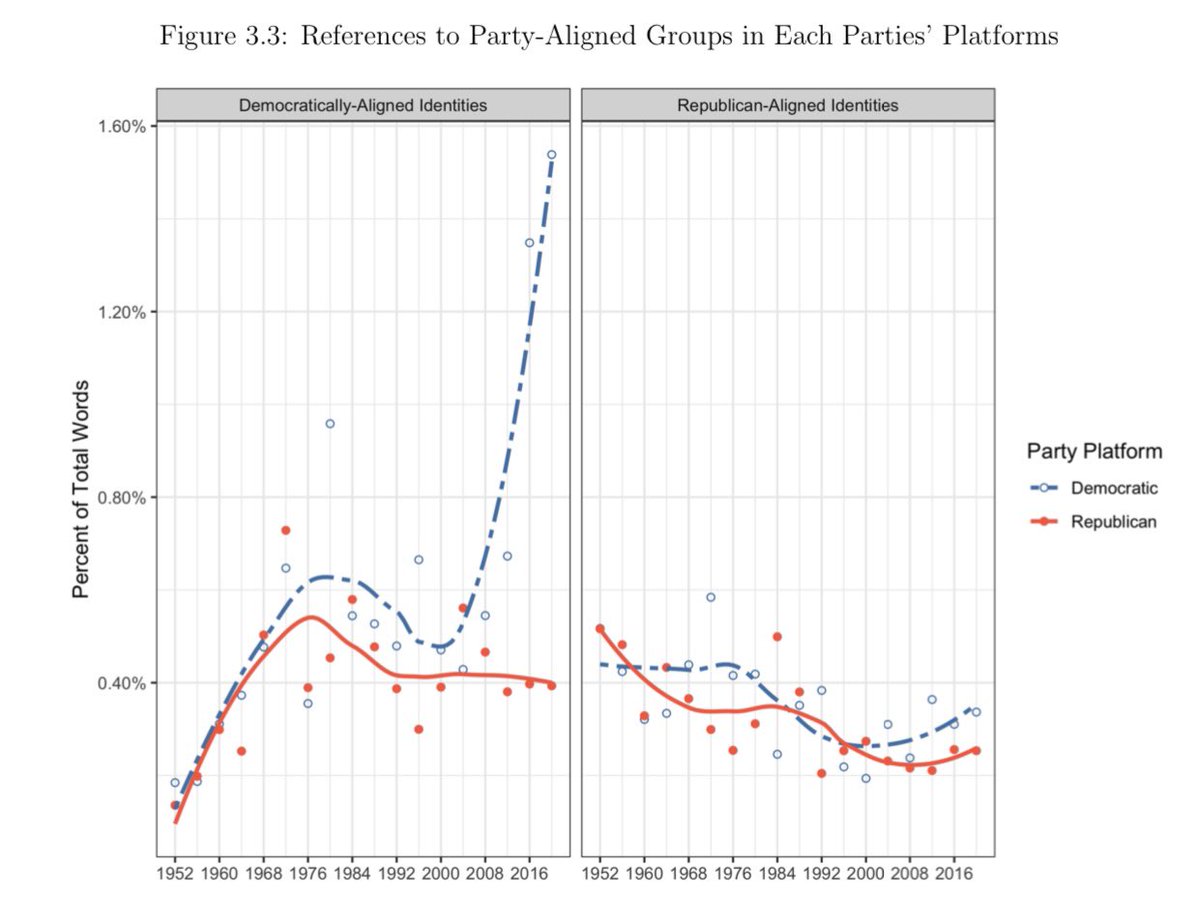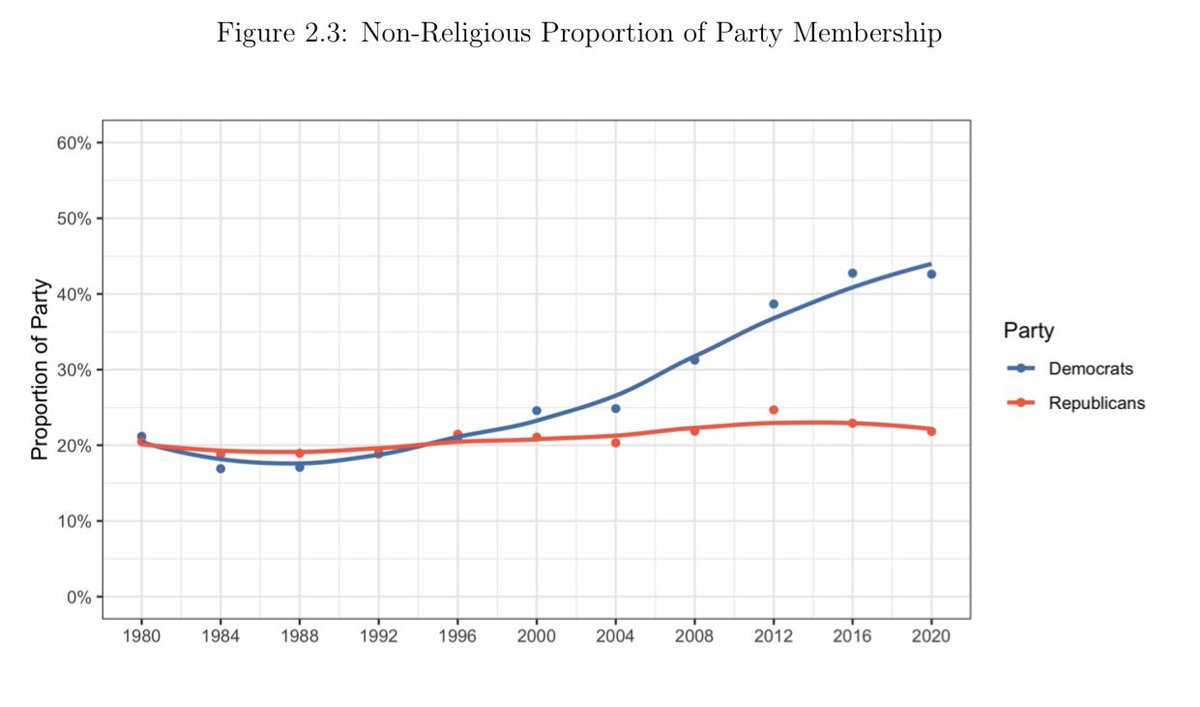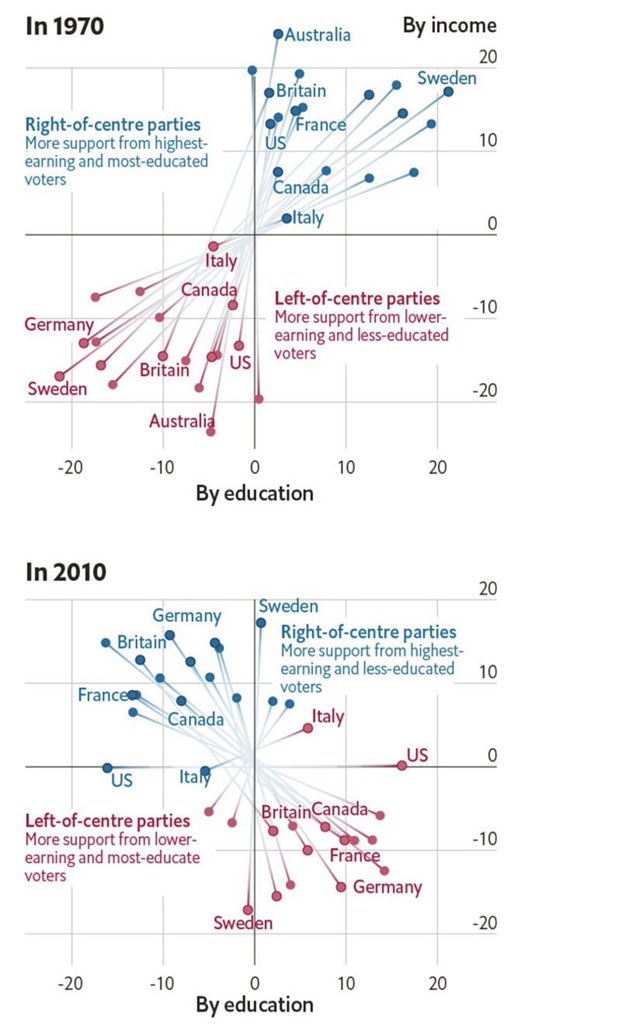
Democrats have increasingly focused on appeals to their affiliated identity groups in recent years, without much change among Republicans
#polisciresearch diss
escholarship.org/content/qt4k12…
#polisciresearch diss
escholarship.org/content/qt4k12…

Republicans have increased their appeals to conservatism lately but referenced liberalism a lot less often
escholarship.org/content/qt4k12…
escholarship.org/content/qt4k12…

The diss finds limited evidence that identity appeals increase affective polarization, though affective polarization is increasing with Democratic diversification. Interestingly, the Republican Party is relatively stable on racial & religious composition
escholarship.org/content/qt4k12…
escholarship.org/content/qt4k12…

Our own data on Party messages does not include the latest time period, but we do find that Democrats consistently make more references to social groups & Republicans more to ideological principles & labels & these differences show up beyond elections:
mattgrossmann.tumblr.com/asymmetrydata
mattgrossmann.tumblr.com/asymmetrydata
• • •
Missing some Tweet in this thread? You can try to
force a refresh








